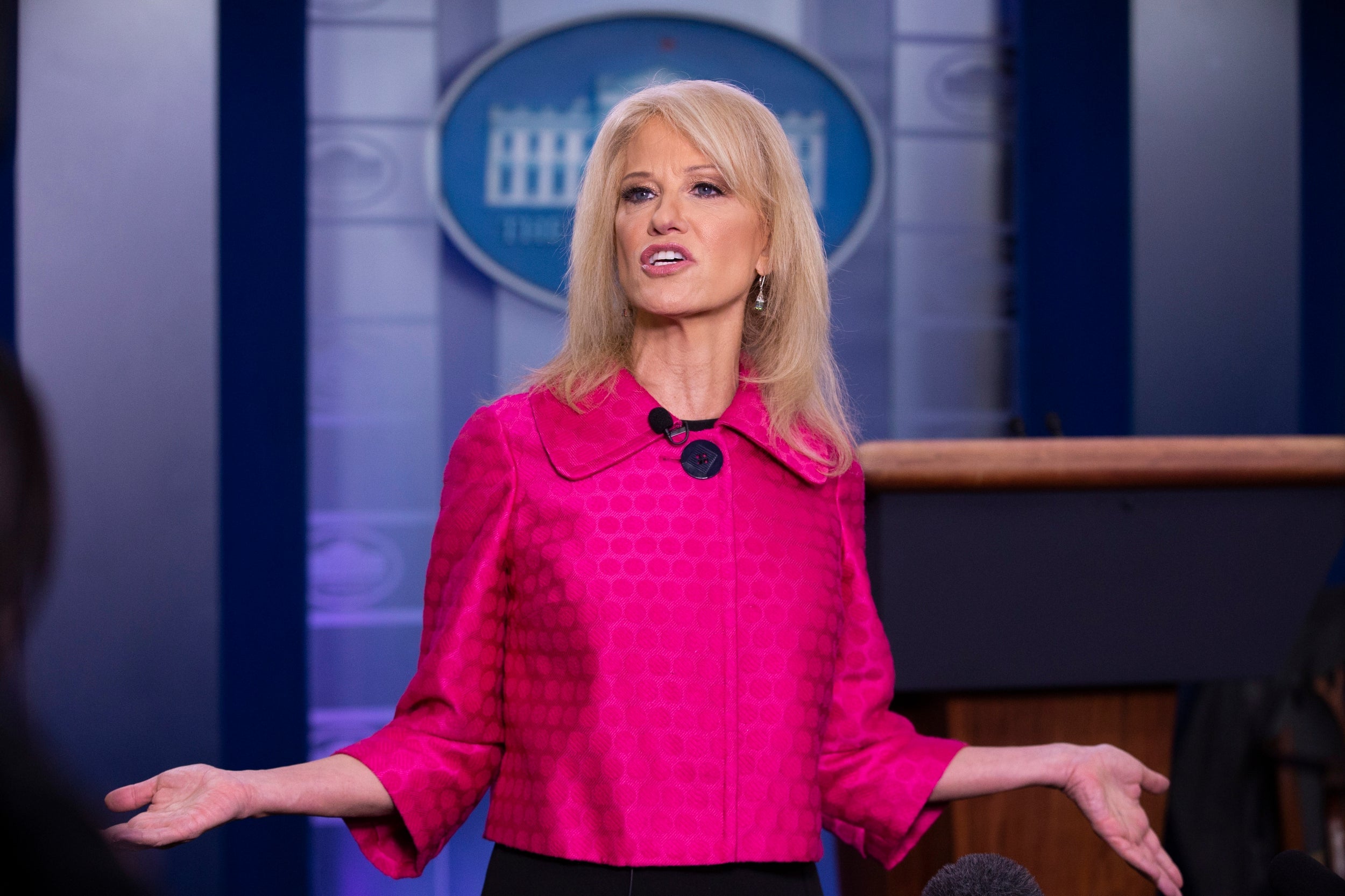Trump adviser Kellyanne Conway suggests Iran may be hiding strategic military targets at cultural sites
President doubles down on threat to attack non-military targets
Your support helps us to tell the story
From reproductive rights to climate change to Big Tech, The Independent is on the ground when the story is developing. Whether it's investigating the financials of Elon Musk's pro-Trump PAC or producing our latest documentary, 'The A Word', which shines a light on the American women fighting for reproductive rights, we know how important it is to parse out the facts from the messaging.
At such a critical moment in US history, we need reporters on the ground. Your donation allows us to keep sending journalists to speak to both sides of the story.
The Independent is trusted by Americans across the entire political spectrum. And unlike many other quality news outlets, we choose not to lock Americans out of our reporting and analysis with paywalls. We believe quality journalism should be available to everyone, paid for by those who can afford it.
Your support makes all the difference.One of Donald Trump's closest advisers has claimed, without evidence, that Iranian cultural sites which would be protected under US and international law could also be military targets.
While speaking with reporters at the White House on Monday morning, Counselor to the President Kellyanne Conway was asked about Mr Trump's threat to retaliate against any Iranian attack on US assets by attacking 52 identified targets, "some at a very high level & important to Iran & the Iranian culture".
The president reiterated his threat on Sunday, telling reporters: "They’re allowed to kill our people. They’re allowed to torture and maim our people. They’re allowed to use roadside bombs and blow up our people. And we’re not allowed to touch their cultural sites? It doesn’t work that way,"
Ms Conway replied that she thinks Iran "has many military sites, strategic sites, that you may cite that are also cultural sites".
She offered no evidence to back up her assertion, and when pressed further on her suggestion that Iran's government is somehow camouflaging military assets within cultural sites, she denied making any such statement.
The US is a party to both the 1907 Hague Convention and the 1949 Geneva Convention, which prohibits attacking "historic monuments, works of art or places of worship which constitute the cultural or spiritual heritage of peoples". The 1996 War Crimes Act defines a war crime as a grave violation of either treaty, and the US Defence Department Law of War Manual clearly states that "cultural property, the areas immediately surrounding it, and appliances in use for its protection should be safeguarded and respected".
When asked if President Trump was aware of the prohibitions against attacking cultural sites in American law and Defence Department policy, Ms Conway referred reporters to a statement by Secretary of State Mike Pompeo that the US would "behave lawfully" in any military action against Iran and claimed that she would not respond to hypotheticals when it was pointed out to her that Mr Trump had contradicted Mr Pompeo hours after he made the statement she had just cited.

Multiple legal experts have said Mr Trump's threat to destroy Iranian cultural sites would be a war crime if carried out.
Since he first entered politics in 2015, Mr Trump has often derided the very idea of war crimes as a manifestation of political correctness. He has often suggested that the CIA's enhanced interrogation program - widely condemned - should be restarted, and he has suggested that killing Islamic State fighters' family members would be an effective anti-terrorism strategy.
Mr Trump has also been an advocate for American soldiers accused of war crimes, and in November pardoned three US service members who were either convicted of war crimes charges or were awaiting trial.
When confronted with Mr Trump's pardons of accused and convicted war criminals and pressed further on whether Mr Trump believes that war crimes "are a thing", Ms Conway responded that she did not know how to answer the question.

Join our commenting forum
Join thought-provoking conversations, follow other Independent readers and see their replies
Comments